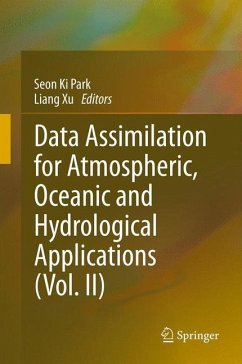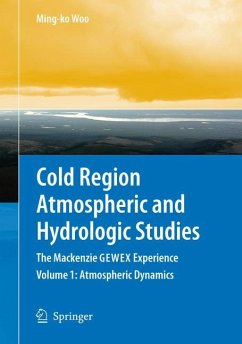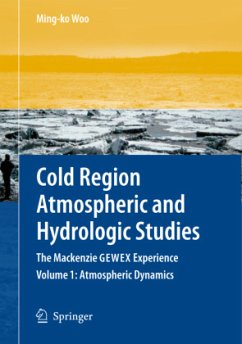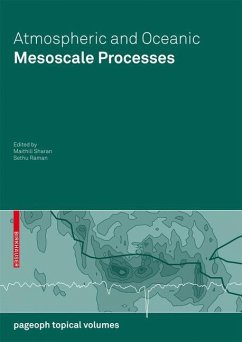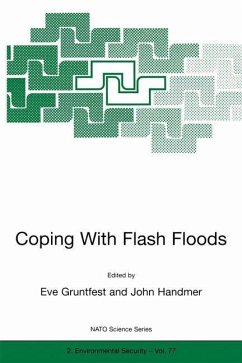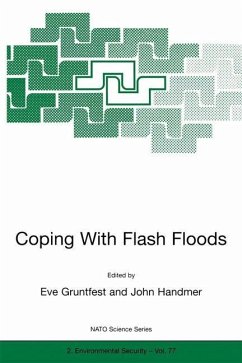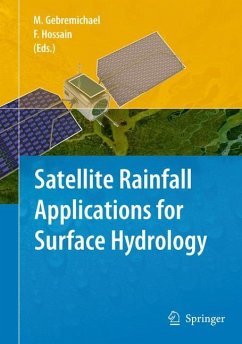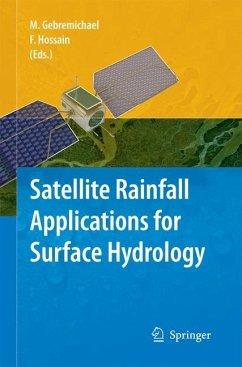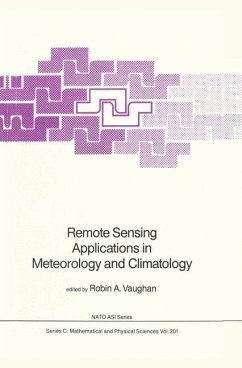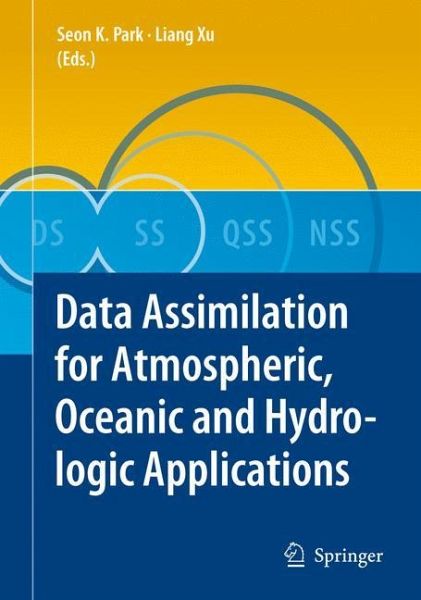
Data Assimilation for Atmospheric, Oceanic and Hydrologic Applications
Versandkostenfrei!
Versandfertig in 6-10 Tagen
113,99 €
inkl. MwSt.

PAYBACK Punkte
57 °P sammeln!
Data assimilation (DA) has been recognized as one of the core techniques for modern forecasting in various earth science disciplines including meteorology, oceanography, and hydrology. Since early 1990s DA has been an important s- sion topic in many academic meetings organized by leading societies such as the American Meteorological Society, American Geophysical Union, European G- physical Union, World Meteorological Organization, etc. nd Recently, the 2 Annual Meeting of the Asia Oceania Geosciences Society (AOGS), held in Singapore in June 2005, conducted a session on DA under the - tle of "...
Data assimilation (DA) has been recognized as one of the core techniques for modern forecasting in various earth science disciplines including meteorology, oceanography, and hydrology. Since early 1990s DA has been an important s- sion topic in many academic meetings organized by leading societies such as the American Meteorological Society, American Geophysical Union, European G- physical Union, World Meteorological Organization, etc. nd Recently, the 2 Annual Meeting of the Asia Oceania Geosciences Society (AOGS), held in Singapore in June 2005, conducted a session on DA under the - tle of "Data Assimilation for Atmospheric, Oceanic and Hydrologic Applications." nd This rst DA session in the 2 AOGS was a great success with more than 30 papers presented and many great ideas exchanged among scientists from the three different disciplines. The scientists who participated in the meeting suggested making the DA session a biennial event. th Two years later, at the 4 AOGS Annual Meeting, Bangkok, Thailand, the DA session was of cially named "Sasaki Symposium on Data Assimilation for At- spheric, Oceanic and Hydrologic Applications," to honor Prof. Yoshi K. Sasaki of the University of Oklahoma for his life-long contributions to DA in geosciences.



